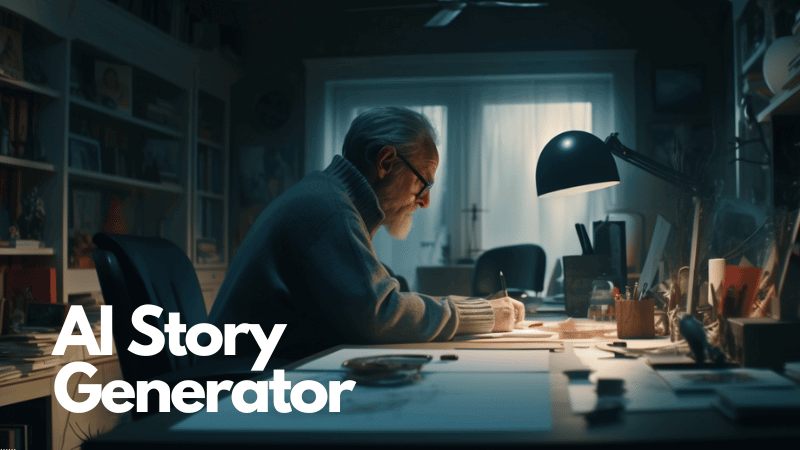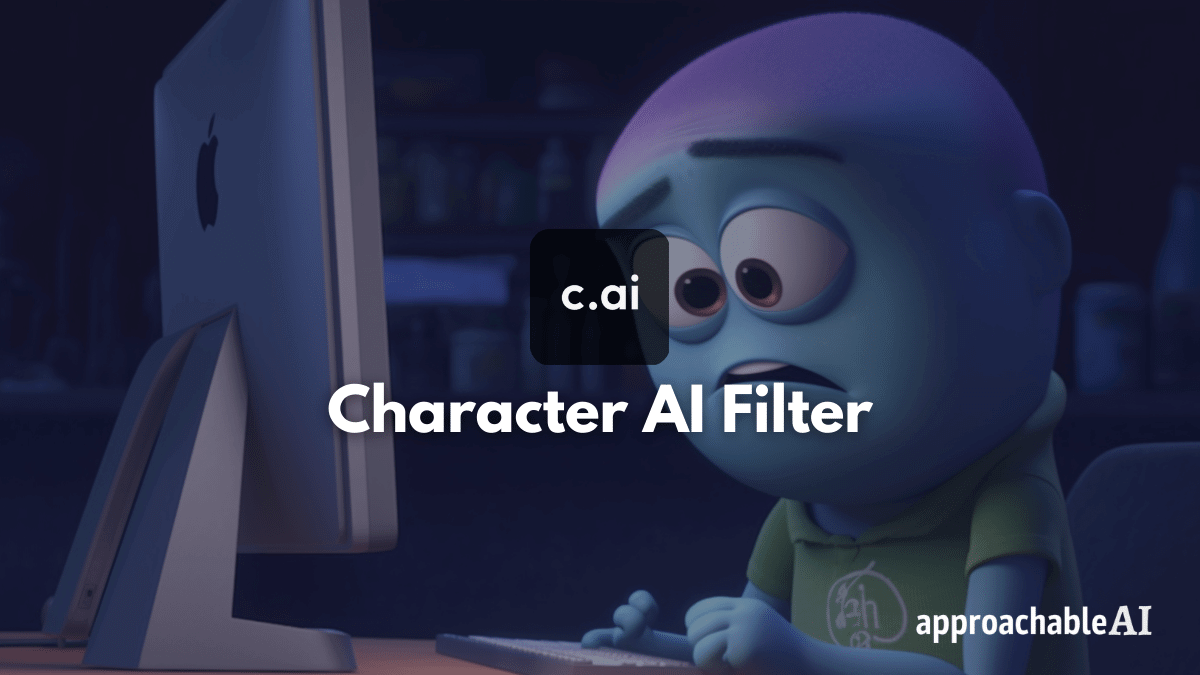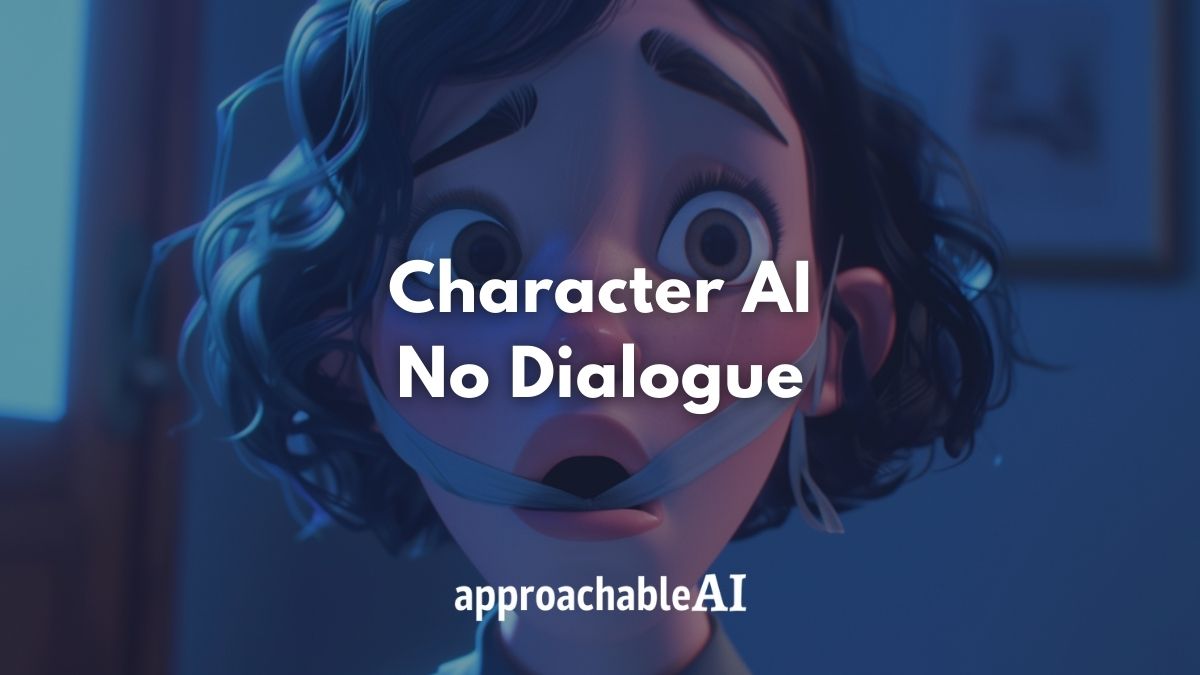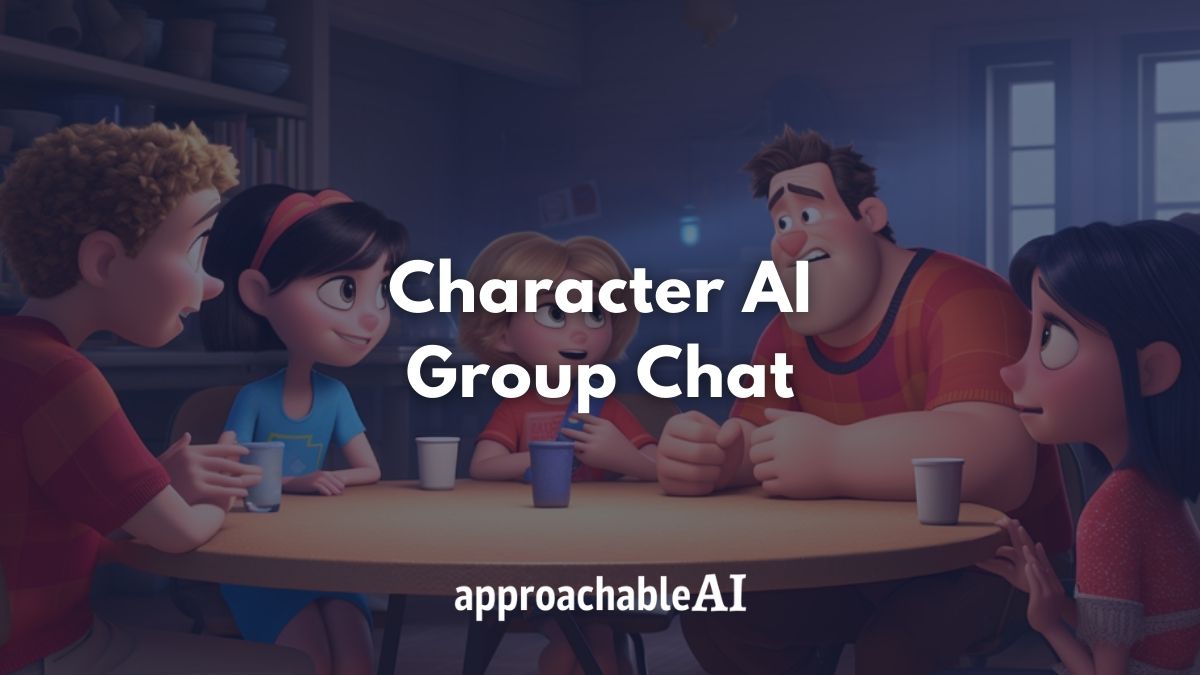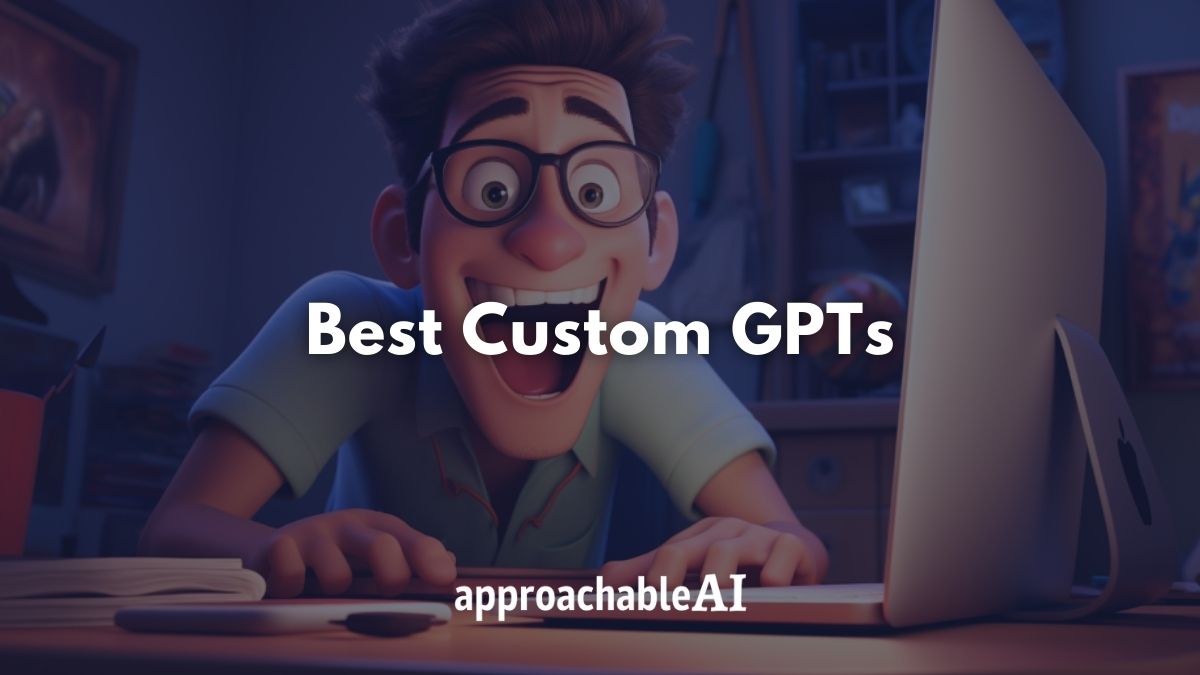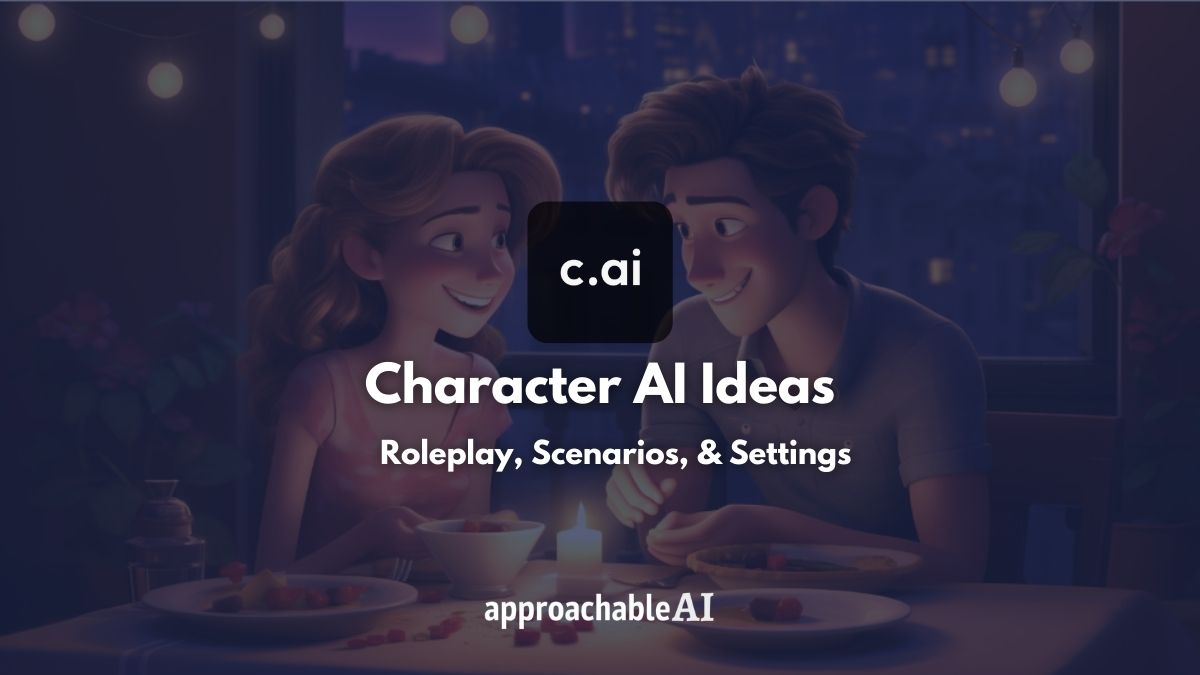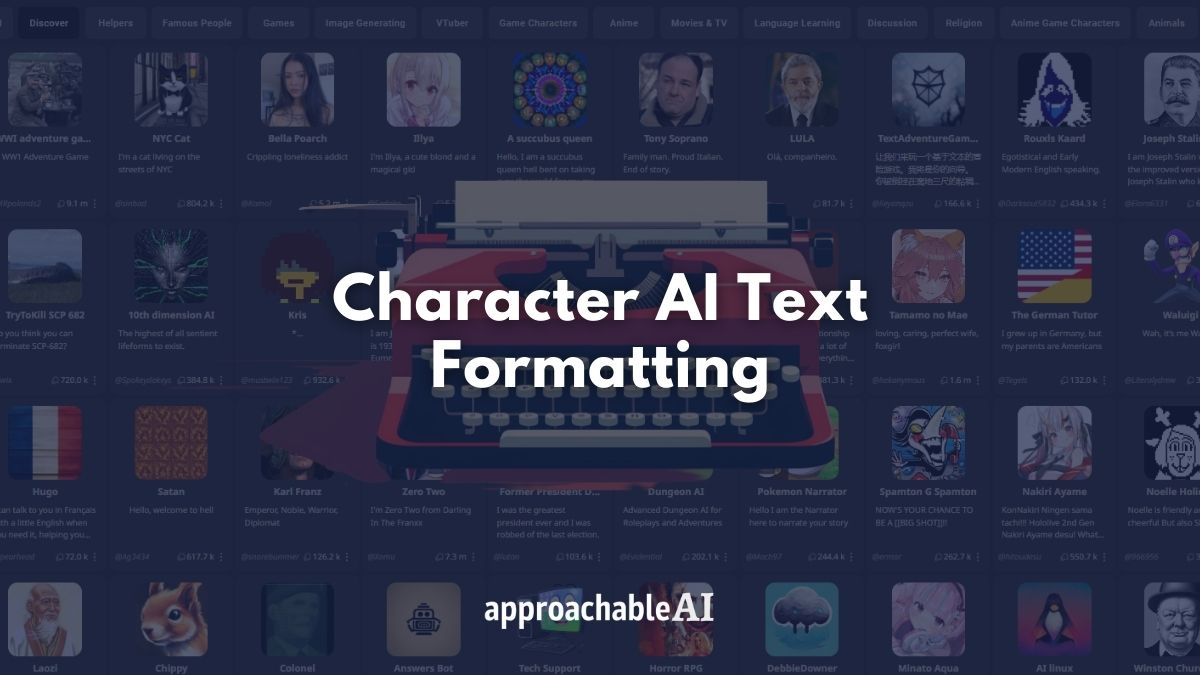Whether you’re an author, a reader, or simply bored, an AI story generator beats staring at a blank page.
AI text generation models have unlocked an amazing new tool for writers and readers alike.
These tools can be effortless to use, however, the limitless potential can be daunting for most people.
In this post, we will look into the best AI story generators available today, how to use these tools to create unique stories and touch on some of the challenges related to these tools.
What is an AI Story Generator?
AI story generators are capable of creating unique and original stories based on user input in the form of prompts. These prompts can be as short as a couple of words or as long as ten paragraphs.
Many AI story writers enable users to specify a genre, characters, setting, plot points, and outline, among other aspects.
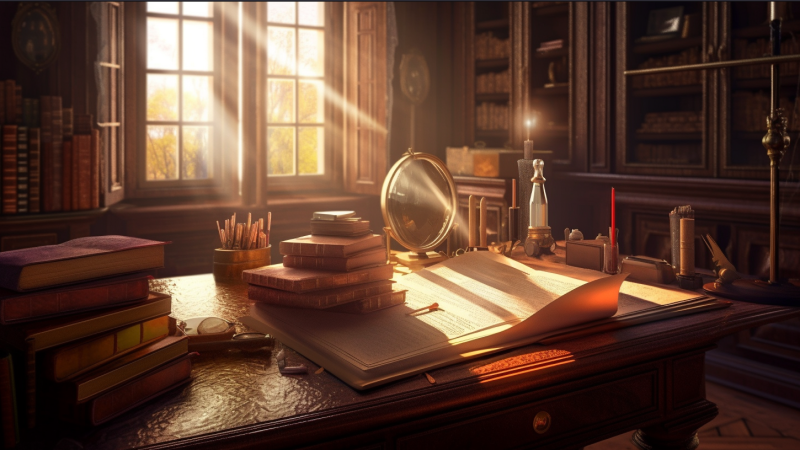
Users then can interact with the AI to steer the story-generation process.
This can be an incredibly fun process. We find it similar to a choose-your-own-adventure book. The story unfolds before you, but with AI the plot is tailored specifically to your interests and preferences.
These tools can also create stories in multiple formats, including short stories, novels, scripts, or interactive fiction, and in varying languages and styles, depending on the model used.
In our experience, an AI assistant can help to overcome writer’s block, generate new ideas, or enhance prose
Outside of fiction, many academics, researchers, and marketers are using these tools to develop captivating and original content for their papers, blogs, websites, and social media platforms.
Best AI Story Generator

Designed for fiction lovers of all genres with an AI image generator. Uses an uncensored AI model.

Best free option for writers and readers interested in taking a more hands-on approach with prompts.

Beautiful interface designed for writers. Provides helpful suggestions and story ideas along the way.
We have tested several AI writing products and the clear winner for fiction writing is NovelAI.
Apart from ChatGPT, there are tons of AI writing apps that rely on OpenAI’s API to function.
This means that OpenAI’s content moderation policies impact any of the services that use its API.
Large companies like OpenAI, Microsoft, and Google control the most powerful AI models.
However, we came across several smaller organizations and open-source projects training AI models with the intent of preserving free speech and user privacy.
NovelAI provides a beautiful user experience. You can tell the development team is passionate about fiction writing.
We also see NovelAI mentioned numerous times on Reddit as the best option for AI fanfiction writing.
Let’s touch on a few things that set NovelAI apart from the competition.
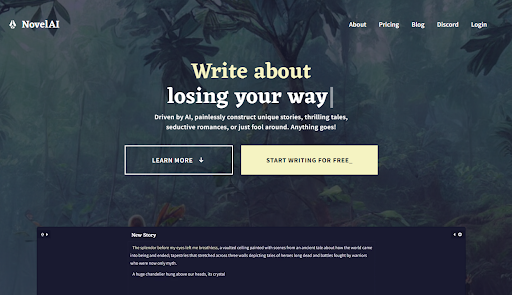
Training Data
NovelAI uses its own AI models, trained on real literature to help it generate human-like writing.
Yes, you can sit in ChatGPT and prompt craft for hours on end, but NovelAI is specifically designed for story writing.
No Censorship
Because Novel AI has its own writing models, the platform is not reliant on OpenAI. This means that users can write about anything.
Obviously, we don’t condone offensive and hateful content but when it comes to fiction writing and art we firmly believe free speech should not be constrained.
We admire OpenAI’s vision and support its efforts to promote ethics, but we also acknowledge that sometimes these filters go too far.
That’s why we are seeing many users attempt to jailbreak ChatGPT using prompt engineering tactics.
Memory
A major challenge with many AI writing tools is the token, or memory, limitation.
NovelAI keeps 2,048 tokens of memory, which means the AI will remember more detail from your stories.
A big plus for developing more consistent and coherent stories.
Image Generation
NovelAI does a great job of integrating AI image generation into its platform.
We’ve seen some really cool content, particularly Anime style, using NAI Diffusion (Novel AI Diffusion).
How to Use an AI Story Generator?

While there has been lots of talk about AI replacing creative jobs, an AI writing assistant is only as good as the inputs you feed it.
Sure, AI can be useful for brainstorming and generating ideas, but it’s still up to the author to determine what is good and bad.
This is called taste. And it’s different for everyone.
So how do you use an AI story generator effectively? Here are some general steps you can follow:
Step 1
Choose an AI story generator tool that suits your needs and preferences. We recommend Novel AI, but if you’re willing to do some prompt engineering or already subscribe to an AI writing tool, by all means, use what’s available!
Step 2
Decide on the genre, style, tone, and length of your story. There is literally no limit to the themes, settings, characters, or plot points you can create. But having a clear vision for your story will help you stay on track with a coherent narrative.
Step 3
Enter a prompt or a starting sentence for your story. Don’t get too tied up on this step. The prompt should be clear, specific, and interesting enough to spark the AI’s imagination. But there’s no wrong answers here. Often, we have found the best stories have come from some of the most mundane prompts. Free free to also use keywords or phrases to guide the AI’s direction.
Step 4
Generate one or more stories based on your prompt. Ask questions and provide feedback to the AI writing assistant. This can help you explore new plot lines. We find that having a cowriter by your side can help you explore alternative ideas in a more productive way.
Step 5
Edit and refine your stories as needed. The AI is not perfect and may make some mistakes or inconsistencies in its writing.
If you’re just generating stories for yourself it’s not a big deal, but if you plan on sharing the writing on Reddit or other forums, it doesn’t hurt to proofread and edit your stories for clarity and consistency. This is also an opportunity to add your own flair and voice to make them more personal.
Bonus Step
We have found the coolest way to generate AI stories or find inspiration is to ask the AI to write in the style of one of our favorite authors.
Even better if you choose a topic that your favorite author has never written about.
For example, we generated a horror story in the style of Philip Roth below.
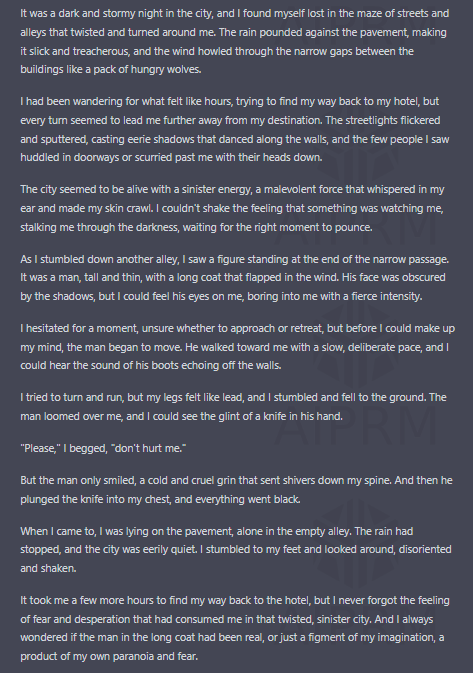
Challenges with AI Story Generators
While AI-writing games like AI Dungeon have been around for a couple of years, generative AI is still a relatively young space.
One of the biggest challenges with AI story writers is the token limit.
Note: Token limit is basically the number of characters or words the AI model can remember as your story progresses.
For example, you start writing a story about a detective who puts on a trenchcoat and drives to a crime scene.
You start generating a story about the crime scene but at some point, the AI model will forget about the detective putting on the trenchcoat.
This is a technical limitation due to compute power. We fully expect these limits to become less of an issue as AI models become more efficient and processing equipment becomes more advanced.
Another challenge with generative AI is referred to as hallucinations.
Note: A hallucination is essentially the model providing a confidently wrong response
For fiction, this might not be a huge deal, but this AI tick can sometimes derail a good story.
The hard part about hallucinations is that it’s sometimes difficult to detect and even harder to fix.
We have found the best way to address hallucinations is to provide overly detailed instructions to the model about what you do and do not want in the output.
This includes reminding the AI about specific plot details like the setting, characters’ backgrounds, and prior actions.
This can be a bit tedious, but it’s the best way to get a narrative back on track without having to start over.
Conclusion
There are tons of ways to generate a story using AI. The best option largely depends on if you are a writer, reader, or both.
Other important factors are your level of comfort with writing AI prompts in apps like ChatGPT and whether your style of writing requires an unfiltered model like Novel AI’s.
We have found generative AI to be an amazing way to remove some of the perceived barriers when it comes to creating a great story.
And we have had tons of luck across several genres including fan fiction, horror, fantasy, and sci-fi.
So get out there and start generating. We promise you’ll be surprised by what you come up with!
Thanks for reading, and be sure to check out our newsletter for the latest generative AI guides and app reviews.
